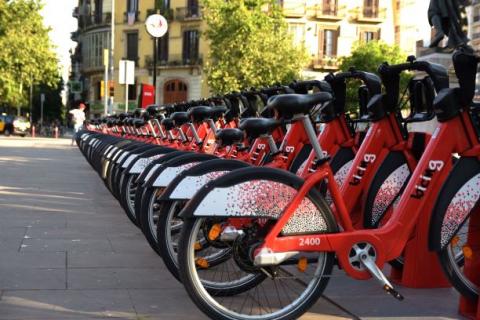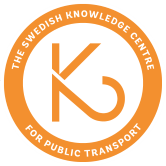Article highlighted
Governing smart mobility to achieve broader sustainability goals

“A message saying smart mobility will only be developed in a desired direction and fulfil societal objectives if it is steered in that direction has been conveyed extensively. This book aims to take the discussion one step further by focusing on what governance of smart mobility looks like today and can look like in the future”, Claus Hedegaard Sørensen explains.
The advent of autonomous vehicles, the roll-out of electrification and the introduction of shared mobility solutions have influenced the public debate, as well as the academic discussion, within the field of mobility and transport. While these developments differ in terms of both technologies and business models, the notions of ‘smart mobility’ and ‘smart transport’ are increasingly applied as synonyms of mobility and transport futures. Included in smart mobility futures are, for example, autonomous and connected vehicles, shared platform-based mobility such as car-sharing, bike-sharing, ride-sharing, combined mobility like Mobility as a Service, as well as electrification.
Smart mobility is often envisaged as a solution that enables highly mobile societies with a limited carbon footprint, because mobility is expected to be electrified, shared and more efficient. For that reason, achieving smart mobility is often expressed as a goal on its own.
“But it is contestable whether ‘smart mobility’ really is that smart. Smart mobility might also be counterproductive, for example, regarding sustainability, congestion and the attractiveness of cities”, says Alexander Paulsson
Since smart mobility might also have undesired and unintended consequences the ambition of this anthology is not to discuss how to implement smart mobility in the most efficient way, but rather to discuss how smart mobility can be governed so that broader sustainability goals or other societal goals are achieved.
As of today, policy instruments used in the transport sector include, but are not limited to, a range of taxes and fees, as well as legislation on traffic and vehicles that includes parking restrictions and land-use planning. In futures of smart mobility, some of these policy instruments might be weakened, as the technology makes them either obsolete or redundant.
“Autonomous cars, for example, would not have to care about parking restrictions, because they can continue circulating or park outside the city centre. Other policy instruments might be strengthened as the socio-technological changes are more aligned with the objectives of the instruments, for example, taxes or fees based on kilometres travelled”, says Claus Hedegaard Sørensen.
The anthology, Shaping smart mobility futures: governance and policy instruments in times of sustainability transitions, will be further presented at a K2 lunch seminar on September 2.
You can buy your copy of the book here.
About the editors
Alexander Paulsson is a Lecturer at Lund University, School of Economics and Management and a Researcher at the Swedish Knowledge Centre for Public Transport (K2). He is currently doing research on the governance of new forms of mobility and the marketisation of public transport as well as political economies of post-growth societies. His research interests are broadly within the areas of organisation studies, science, and technology studies as well as ecological economics. He has recently edited (with S. Barca and E. Chertkovskaya) Towards a political Economy of Degrowth (Rowman and Littlefield Publishers, 2019).
Claus Hedegaard Sørensen is a Research Leader at the Swedish Knowledge Centre for Public Transport (K2) and a Senior Researcher at Swedish National Road and Transport Research Institute (VTI). He is conducting research on transport governance, and his research has mainly focused on environmental policy integration in transport; national transport planning; organisation and collaboration within public transport; as well as the use and role of knowledge in transport policy-making. The last couple of years he has mostly researched and published on the governance of smart mobility.
